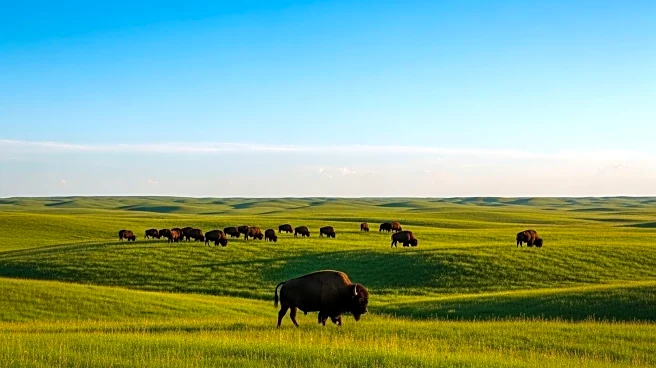Bison burgers have carved a unique niche in American cuisine, offering a healthier alternative to traditional beef burgers. Their ecological impact is marked by the conservation efforts to preserve the American bison population and the growing interest in sustainable eating practices. Recommended by the American Heart Association since 1997, bison burgers continue to influence dietary choices across the nation.
Habitat or Environment
The habitat of the American bison plays a crucial role in the ecological impact of bison burgers. Sustainable ranching practices support the protection of bison habitats, ensuring the species' survival and ecological balance.
Interactions and Dependencies
The interactions between bison and their environment contribute to the lean quality of bison meat, which is lower in fat compared to beef. These dependencies highlight the importance of preserving bison habitats to maintain healthy populations and promote sustainable meat production.
Conservation or Status
The conservation status of the American bison is linked to the popularity of bison burgers, which support efforts to protect bison populations and habitats. The demand for bison meat encourages sustainable ranching practices and the maintenance of ecological balance.
Human Impacts
The human impact of bison burgers is evident in the promotion of sustainable eating practices and the conservation of the bison population. Their popularity reflects a growing interest in healthier and environmentally friendly meat options, making them a symbol of conscious consumption.

 Discover Daily
Discover Daily 







